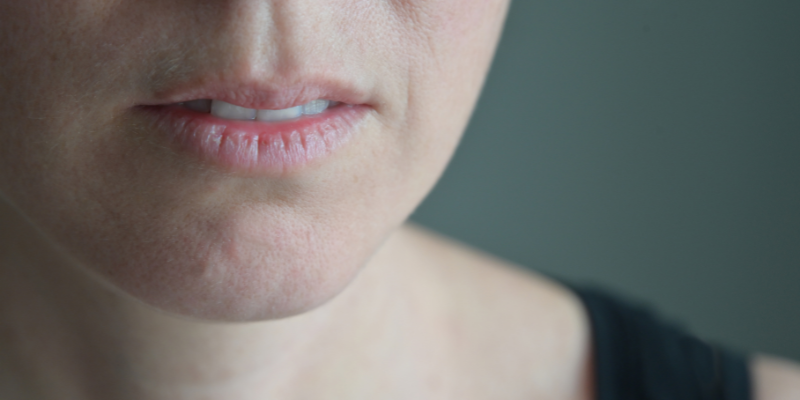Tobacco hurts your teeth in many ways. Cigarettes limit your mouth’s ability to fight off infection, which leaves you defenseless against the bacteria produced by smoking. When your mouth can’t fight back, plaque and bacteria fester. This leads to tooth loss, yellowing of teeth, and more.
At AZ Family Dental, we understand how difficult it can be to stop smoking. And many patients don’t know how much their habit can hurt their dental health.
In this blog, we’ll look at the following:
- How does tobacco damage teeth?
- Why is tobacco so bad for your gums?
- What are the effects of smoking to your teeth?
- What are the effects of smoking to your gums?
- Can dentist tell if you’re a smoker?
- Smoking and oral health stats
- Special dental care for smokers
- Gum disease prevention for smokers
- Can you reverse the effects of smoking?
How Does Tobacco Damage Teeth?

When you smoke, you short-circuit your body’s auto-immune system defenses. Your body will have a hard time protecting itself. Suddenly, tartar buildup becomes a significant issue because your body can’t battle a potential infection.
Grit in tobacco can also rub teeth and wear away their protective enamel coating.
It’s not only cigarettes, either. Smokeless tobacco products can also cause harm to your mouth, and not just because of the nicotine. When you hold the tobacco in your mouth for long periods, you’re exposing your teeth to damaging sugar that can cause tooth decay, beyond all the other problems nicotine can spark.
Why Is Tobacco So Bad for Your Gums?
Smokers produce more bacterial plaque in their mouths, in part because the nicotine in cigarettes causes a reduction in the amount of oxygen delivered to the soft gum tissues in the mouth. At the same time, nicotine also constricts blood vessels and blood flow to the gum, which can impact the length of time it takes to diagnose gum disease by minimizing bleeding, a main indicator. For this reason, smokers’ diagnosis of gum disease can be delayed, and the disease may worsen in the meantime.
What Are the Effects of Smoking to Your Teeth?

Your teeth grip the cigarettes you smoke and come in direct contact with the dangerous toxins you inhale when you take a drag. It’s little surprise they’re harmed so severely by tobacco. Symptoms of severe tooth problems may include:
- Yellowing or browning of the teeth
- Bleeding gums
- The buildup of calculus (hardened plaque)
- Tooth decay
- Dry mouth
- Bad breath
These symptoms often lead to even more significant side effects from smoking, such as:
- A greater need for root canals
- Loss of teeth
- Damaged tooth enamel
What Does Smoker’s Teeth Look Like?
Long-term smoking can lead to yellow or brown teeth as well as visible decay from plaque build-up and erosion. The issue can be more than just cosmetic. Smoking can impact the way you chew and how your bite aligns. One study found female smokers lose 1.5 teeth every ten years, and male smokers lose 2.9.
What Are the Effects of Smoking to Your Gums?
Tobacco causes problems with the gums that range from cosmetic to downright painful. Using tobacco in any form, including cigarettes and chewing tobacco, can increase the tartar buildup in your mouth and decrease the flow of saliva, which washes away harmful bacteria. When you smoke, you may notice problems developing with your gums, such as:
- Tenderness and redness
- Blood when brushing or flossing your teeth
- Loosening of teeth
- Pus oozing between teeth
- Pain when chewing
- Bad breath
- Looser fit for dentures
- Receding gum line
These signs of periodontal disease should be addressed with your family dentist immediately. They can treat the condition through many solutions that range from simple to complex, such as:
- Anti-microbial mouthwash
- Oral antibiotics
- Doxycycline gel
- Bone surgery
- Grafting soft tissue
- Flap surgery to remove tartar from pockets beneath the gums
- Deep cleaning
Can Dentist Tell If You’re A Smoker?
Aside from sharing this information with your dentist, other signs are found in the condition or appearance of your teeth. For example, long-term, heavy smokers may have stained teeth from nicotine or other existing conditions as a result of the tobacco, like dry mouth, excessive cavities, and bruxism (grinding of the teeth).
Some people get embarrassed to come to the dentist when they smoke. They worry that hygienists and dentists will judge them for using nicotine. They fear lectures on what they should be doing differently.
There’s a reason why fewer smokers visit the dentist: They don’t want to feel guilty. Dentists don’t want you to feel guilty either, and we don’t want to lecture you. We want to ensure you’re doing everything to keep your mouth healthy, whatever that should be. Contact us today to learn more about how we can bring your smile back to life.
Smoking and Oral Health Stats
- Sixteen percent of people who smoke have poor dental health, four times the rate of people who have never smoked.
- Smokers are less likely to have gone to the dentist in the past five years than non-smokers.
- More than a third of smokers have at least three dental health issues.
- Smokers are 64.2 percent more likely to develop gum disease than non-smokers.
- More than 40 percent of all periodontal disease in the United States is attributable to smoking.
- Over 40% of adults aged 20 to 64 who currently smoke cigarettes have untreated tooth decay.
Special Dental Care for Smokers
If you haven’t quit smoking yet, here are a few dental tips that can help address your dental hygiene problems:
- Use mouthwash religiously. You want to pick a strong formula that will zap bacteria. You also want to swish for at least 60 seconds to kill as many bacteria as possible.
- Floss every day. Flossing is especially vital for smokers, as it’s an effective way to avoid the buildup of calculus on teeth. If you notice a lot of bleeding as you floss, it could be a sign of early periodontal disease.
- Have your tongue and gums checked closely at your dental appointments. Let your dentist and hygienist know you are a smoker so they can closely watch for signs of periodontal disease and oral cancer. The quicker you act after detecting something, the greater the chance of catching a serious problem early.
AZ Family Dental welcomes all patients to our practice, whether you’re a smoker or non-smoker. We have helped many patients deal with gum disease and tooth loss caused by smoking. We can help with cosmetic dentistry procedures to restore your teeth to their former luster.
Gum Disease Prevention for Smokers
Smokers are eager to know if they can prevent gum disease. Giving up smoking is the best way to fight gum disease, but it’s also important to practice good oral hygiene. Floss daily and brush after every meal using toothpaste with fluoride. Perhaps the best way to avoid future gum issues is to visit your dentist regularly. Your dentist or hygienist can recognize the signs of periodontal disease and work to combat it.
In addition to smoking’s effects on teeth and gums, this habit can have other unfortunate impacts on oral health.
- You’re at higher risk of developing oral cancer, including cancer of the tongue.
- Your salivary glands may become inflamed.
- You can also raise the chance of leukoplakia, or white patches inside the mouth.
If you smoke, dental implants have less chance of being successful. Bone loss may happen in the jaw, and it can take longer for you to recover from oral surgery. This is especially problematic because you’re more likely to need oral surgery for the problems smoking causes.
Can You Reverse the Effects of Smoking?
The best thing you can do for your dental health is, of course, to quit smoking. Your dentist or hygienist can offer information on smoking cessation programs or tell you what has worked for other patients.
At AZ Family Dental, we recognize that quitting smoking can be one of the most challenging things you’ll ever try to do, and it can take time to work. We work hard to help our patients restore their dental health through several procedures. If you need to restore your smile, we can perform many services, including:
- Veneers — Veneers are porcelain overlays applied to your teeth to improve the appearance of your smile. They are permanent and attached using oral cement. With this form of cosmetic dentistry, you can keep the existing teeth in your mouth but whiten and freshen them to brighten your mouth. Veneers may be a good option if smoking has resulted in discolored teeth, but most of them are still in place and structurally sound. It takes a few visits to apply a full set of veneers.
- Teeth Whitening — Want to improve the coloring of your teeth but don’t want something as involved as a veneer? Teeth whitening may be the answer. At AZ Family Dental, we can bleach teeth many shades lighter than their current appearance. Whether you just want to remove a couple of stains on your front teeth or lighten all of them, your dentist can help you find the right look.
- Correct Your Bite — When the chemistry and layout of your mouth change, such as when you undergo surgery for gum disease or a tooth falls out, your bite may change, too. Luckily, this problem can be corrected. Your dentist will need to perform X-rays. Often, teeth are reshaped to achieve the optimal bite, which can reduce mouth pain and headaches.
- Dental Implants — If you have lost teeth due to smoking, your dentist can design dental implants, essentially replacement teeth that replace the root and crown of the tooth that used to be there. This is more permanent and involved than a pair of dentures. Implants are permanent and take several weeks to complete, from the making of the implant to the follow-up visit after it’s been implanted.

Published on: March 9, 2016
Updated on: November 17, 2023
